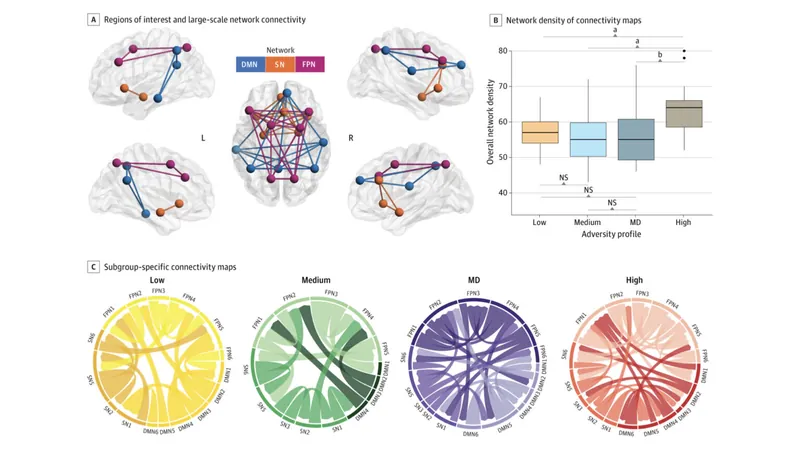
Alarming Link Between Early Adversity and Teen Mental Health: What Every Parent Needs to Know!
2024-09-30
Introduction
In a groundbreaking 15-year study conducted by researchers at the University of Michigan, a clear connection has emerged between early adversity, maternal depression, and the increased risk of mental health issues in teenagers. As it turns out, those formative years can leave lasting scars, significantly impacting emotional stability and brain functioning as youngsters transition into adolescence.
Study Overview
Tracking over 4,000 youths from birth through age 15, the research, published in JAMA Network Open, delves deep into how various forms of childhood adversity—including maltreatment, family violence, and notably, maternal depression—can shape future mental health outcomes. The revelation? Teens who experienced high levels of emotional and multidimensional adversity are at the highest risk, showing significant alterations in brain activity related to emotion processing.
Profiles of Adversity
The researchers categorized children into four distinct profiles of adversity: 1. **Low Adversity:** Minimal exposure to challenging life experiences. 2. **Medium Adversity:** Moderate adverse experiences across multiple domains. 3. **Maternal Depression:** Moderate adversity combined with high levels of maternal depression. 4. **High Adversity:** Severe adversities across all measured domains.
Expert Insights
Christopher Monk, a professor of psychology and psychiatry at U-M, emphasized, "Adverse childhood experiences occurring both within and outside the home are critical risk factors for poor health outcomes." However, he argues that not all adverse environments impact children equally, and the combination of these experiences can vary widely.
Research Methodology
The study innovatively employed advanced statistical techniques to understand how different forms of adversity contribute to mental health issues and brain changes during critical developmental stages. Remarkably, it was found that even moderate levels of adversity accompanied by a mother's mental health struggles can produce effects as severe as those seen in children exposed to extreme adversities.
Consequences of Adversity
"Children raised in environments filled with multiple risk factors, particularly those with depressed mothers, face the highest degree of emotional turmoil," said Felicia Hardi, a U-M alum and now a postdoctoral fellow at Yale University. The importance of supporting maternal mental health cannot be overstated; it's a decisive factor in a child's emotional development.
Call to Action
These findings serve as a wake-up call for policymakers and mental health advocates. Hardi suggests the need for comprehensive strategies that address several risk factors simultaneously and emphasize maternal support, which is vital for safeguarding the long-term mental health of our youth.
Conclusion
In an age where youth mental health crises are escalating, understanding and intervening in these early experiences can be lifesaving. Parents, educators, and community leaders must prioritize emotional support and create nurturing environments to prevent these profound effects from taking root. The time to act is now—because every child deserves a chance to thrive!


 Brasil (PT)
Brasil (PT)
 Canada (EN)
Canada (EN)
 Chile (ES)
Chile (ES)
 España (ES)
España (ES)
 France (FR)
France (FR)
 Hong Kong (EN)
Hong Kong (EN)
 Italia (IT)
Italia (IT)
 日本 (JA)
日本 (JA)
 Magyarország (HU)
Magyarország (HU)
 Norge (NO)
Norge (NO)
 Polska (PL)
Polska (PL)
 Schweiz (DE)
Schweiz (DE)
 Singapore (EN)
Singapore (EN)
 Sverige (SV)
Sverige (SV)
 Suomi (FI)
Suomi (FI)
 Türkiye (TR)
Türkiye (TR)